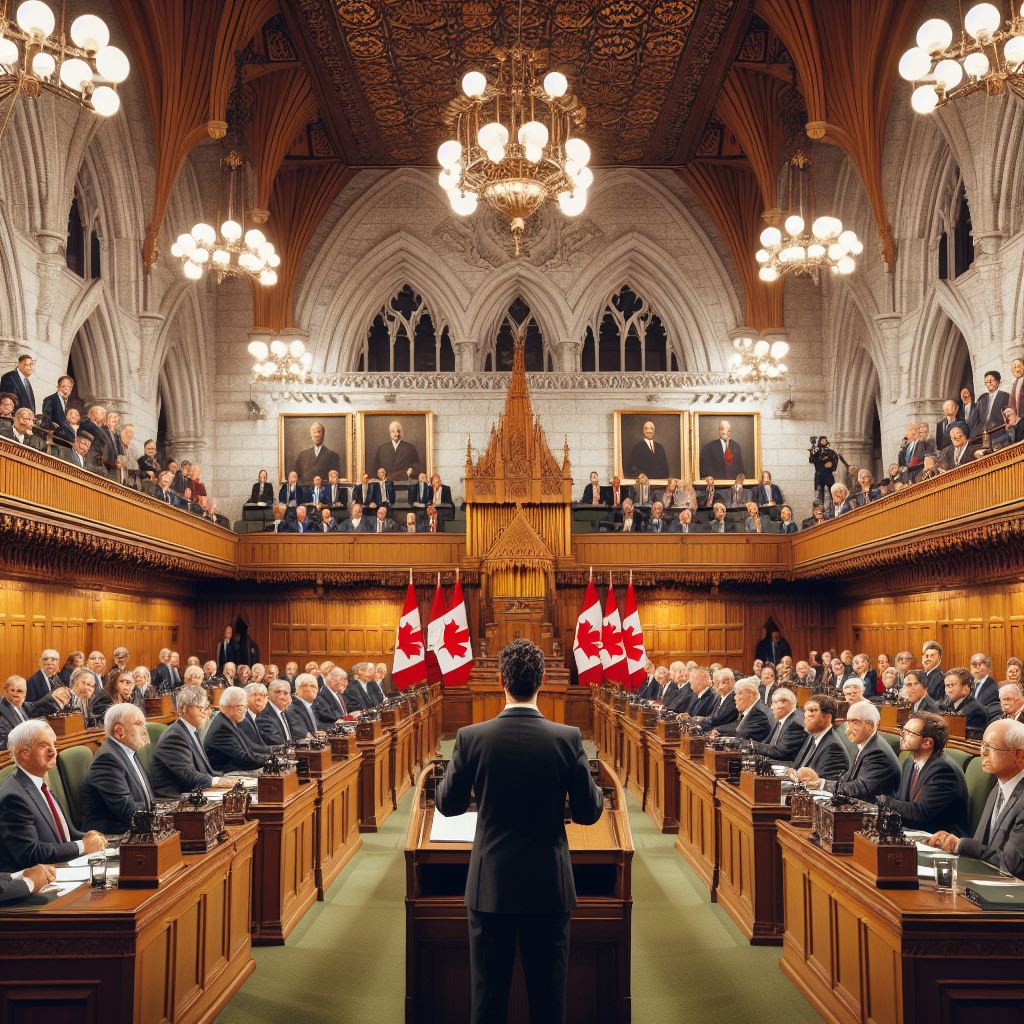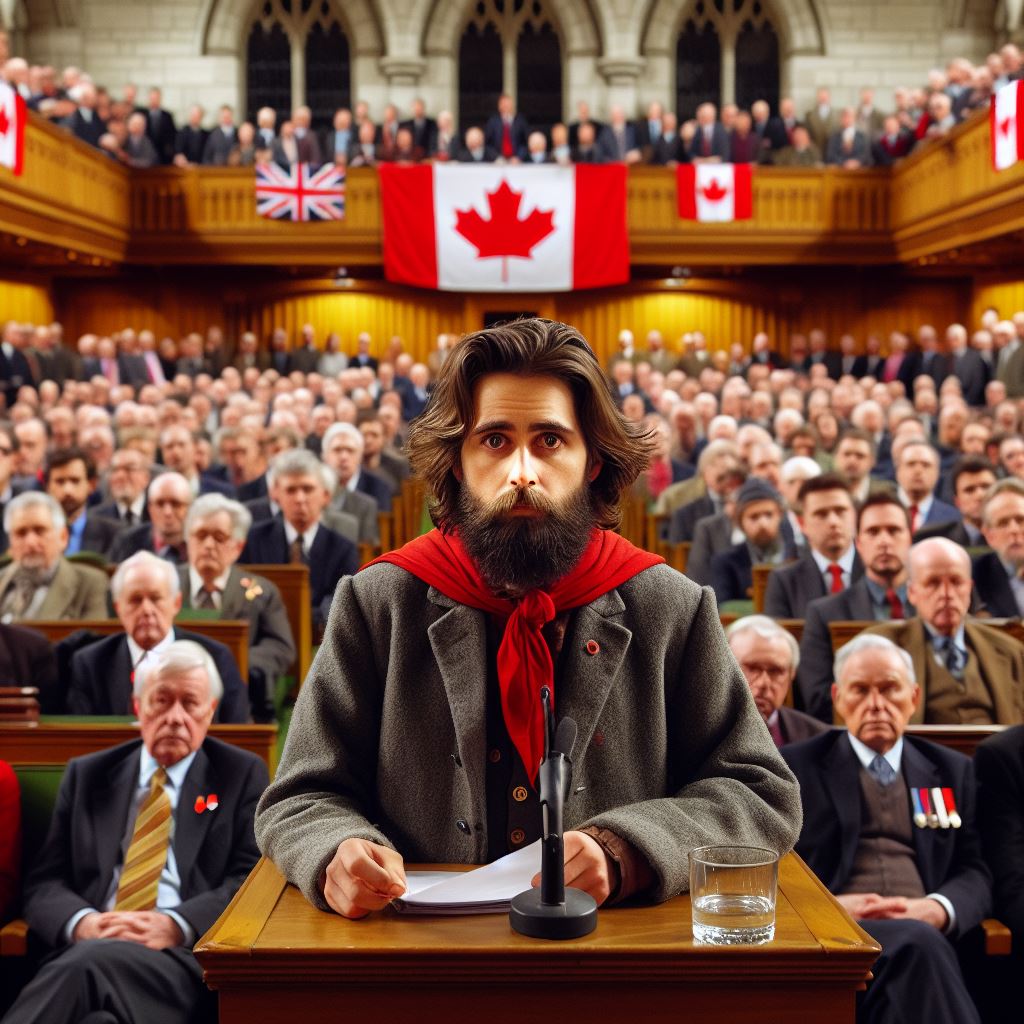Introduction
Members of Parliament (MPs) play a vital role in the Canadian political system.
As elected representatives, MPs serve as a link between citizens and the government, ensuring that their voices are heard and their interests are represented.
The purpose of this blog post is to provide Canadians with a clear understanding of the role and responsibilities of MPs.
MPs are elected by constituents in their respective constituencies to represent them in the House of Commons.
They are responsible for addressing the concerns and issues raised by their constituents and advocating for their interests within the government.
MPs have the power to introduce bills, participate in parliamentary debates, and vote on legislation.
Furthermore, MPs are expected to serve as watchdogs, holding the government accountable for its actions.
They are responsible for scrutinizing government policies, practices, and expenditures, and ensuring transparency and accountability.
MPs also play a crucial role in initiating and participating in committee work, where they assess proposed legislation and contribute to the legislative process.
In addition to their legislative responsibilities, MPs are also expected to be accessible to their constituents.
They are tasked with understanding and addressing the needs and interests of their constituents, providing assistance, and being responsive to their concerns.
In short, MPs play a significant role in Canadian democracy.
They represent their constituents in the legislative process, hold the government accountable, and work towards addressing the needs of Canadians.
Understanding the role and responsibilities of MPs is essential for an informed and engaged citizenry.
Read: Politician Salaries: A Canadian Overview
What is a Member of Parliament?
Define and explain the term “Member of Parliament”
A Member of Parliament (MP) is an elected representative who serves in the legislative branch of government.
MPs are elected by the citizens of their respective constituencies and hold the responsibility of representing their constituents’ interests and concerns in Parliament.
A brief history of the establishment of the role in Canada
The role of Members of Parliament in Canada can be traced back to the establishment of responsible government in the 1840s.
The British North America Act of 1867 formally recognized the role of MPs in the newly formed Dominion of Canada.
It set the framework for parliamentary democracy and established the rights and responsibilities of elected representatives.
The importance of MPs as representatives of the people
Members of Parliament are essential to the functioning of democracy in Canada.
They are elected to articulate the needs and desires of their constituents, making laws, and shaping public policies.
MPs serve as a crucial link between citizens and the government, ensuring that the voice of the people is heard and taken into account when decisions are made.
MPs play a significant role in the legislative process. They debate bills, propose amendments, and vote on legislation that affects the lives of Canadians.
Through committee work, MPs have the opportunity to delve into specific issues, gather evidence, and make informed decisions that promote the common good.
Unlock Your Career Potential
Visualize a clear path to success with our tailored Career Consulting service. Personalized insights in just 1-3 days.
Get StartedFurthermore, MPs act as advocates for their constituents. They listen to concerns, address grievances, and advocate for changes that benefit their communities.
By engaging with individuals, community organizations, and businesses, MPs are able to understand local needs and directly influence policy decisions.
The role of an MP is multifaceted and demanding.
It requires dedication, integrity, and a genuine commitment to serving the public.
MPs must strike a delicate balance between the interests of their constituents, their political party, and their personal convictions.
In fact, Members of Parliament are elected representatives who play a vital role in Canadian democracy.
They serve as the voice of the people, participate in legislating, advocate for their constituents, and hold the government accountable.
MPs are instrumental in shaping the laws and policies that impact the lives of Canadians, making their role essential to the functioning of our democratic system.
Read: Key Skills Needed for Political Careers
The Responsibilities of MPs
In this section, we will delve into the responsibilities of Members of Parliament (MPs) and their vital contributions to the functioning of the Canadian political landscape.
Legislative Role
One of the primary responsibilities of MPs is to actively participate in the legislative process.
They play a crucial role in shaping Canada’s laws and policies.
MPs understand the importance of studying and debating bills thoroughly before making informed decisions.
They analyze the proposed legislation, consider its implications, and contribute to parliamentary discussions.
By engaging in these debates, MPs ensure that the laws passed reflect the best interests of the Canadian people.
Furthermore, MPs possess voting responsibilities. Each vote carries substantial significance, as it directly affects the outcome of bills.
MPs carefully consider the potential impact on constituents, society, and the nation as a whole.
Their decisions shape the legislative landscape and define Canada’s path forward.
Constituency Role
Another crucial duty of MPs is to represent the concerns and interests of their constituents.
MPs act as a voice for the individuals they represent, making sure their constituents’ views are heard and considered by the government.
MPs actively address the issues raised by their constituents. They listen to concerns, provide support, and engage with individuals, organizations, and community groups.
By doing so, MPs effectively advocate for their constituents’ needs, striving to find practical solutions to their problems.
Effective communication and outreach activities are essential in building strong relationships with constituents.
MPs hold town hall meetings, attend community events, and maintain open lines of communication to ensure they stay connected with the people they represent.
By actively engaging with their communities, MPs can gain valuable insights and better understand the issues faced by their constituents.
Party Role
MPs also play a role within their political parties. They contribute to the overall goals and objectives of their party while representing their constituents’ interests.
Loyalty and discipline are integral to the functioning of political parties. MPs are expected to align with their party’s principles and policies.
They support the party’s objectives and work together to ensure their party’s success.
Party dynamics greatly influence the decision-making process of MPs. They consider their party’s stance on various issues when making decisions.
While MPs represent their constituents, they also need to consider the broader goals and interests of their party. Balancing these factors can be a challenging task, requiring important deliberation and judgement.
In essence, MPs have significant responsibilities in both the legislative and constituency realms.
They actively participate in the legislative process, study and debate bills, and make crucial decisions that shape legislation.
They represent the concerns and interests of their constituents, maintaining effective communication and outreach activities.
Additionally, MPs play a role within their political parties, balancing loyalty, discipline, and party dynamics.
By fulfilling these responsibilities, MPs contribute to the democratic functioning of the Canadian political system.
Read: Paths to Becoming a Politician in Canada

How MPs Can Benefit Canadians
As elected representatives, Members of Parliament (MPs) play a crucial role in the Canadian political system.
They serve as the voice of the people and work towards benefiting Canadians in various ways.
This section explores how MPs can positively impact the lives of Canadians through accountability, advocacy, and diverse representation.
Holding the Government Accountable
One of the key responsibilities of an MP is to hold the Government accountable for its actions.
MPs act as a check on the Government’s power, ensuring transparency and preventing any misuse of authority.
By asking tough questions and demanding explanations, MPs help maintain a system of checks and balances.
This accountability is essential to ensure that the Government’s actions align with the interests of Canadians.
Advocating for Constituents
MPs also play a vital role in advocating for their constituents.
They are responsible for raising issues and concerns on behalf of the people they represent.
Whether it is fighting for improved healthcare, increased funding for education, or better infrastructure, MPs have the power to bring attention to these important matters.
Through their advocacy, MPs strive to address the needs of their constituents and ensure their interests are represented in the decision-making process.
Representation and Diversity
Furthermore, the diversity of MPs is crucial for inclusive representation.
Having diverse voices and backgrounds in Parliament allows for a more comprehensive understanding of different communities’ needs and challenges.
When MPs from diverse backgrounds, ethnicities, genders, and socioeconomic statuses come together, it leads to fair and inclusive policies that consider the needs of all Canadians.
Diverse representation ensures that no one is left behind and that the concerns of all segments of society are heard and addressed.
MPs also play a key role in ensuring everyone’s voice is heard in the political process.
They actively engage with their constituents, seeking feedback and opinions on various issues.
This involvement bridges citizens and the Government, ensuring the preservation of democratic values.
By being accessible and approachable, MPs create opportunities for direct communication and representation of the people’s interests.
In a nutshell, MPs are essential in benefiting Canadians through their roles in accountability, advocacy, and diverse representation.
They hold the Government accountable for its actions, ensuring transparency and fairness.
MPs advocate for their constituents, raising issues and fighting for their interests.
Additionally, diverse representation in Parliament leads to inclusive policies that consider the needs of all Canadians.
MPs strive for inclusive representation, fostering democracy by amplifying every voice in the political process.
Canadians should have a strong understanding of the role of MPs to actively engage in the democratic process and hold their elected representatives accountable.
Read: Canadian Political Ethics: A Deep Dive
Conclusion
This blog post discussed the important role that MPs play in Canadian democracy.
It is crucial for Canadians to understand and appreciate the role of MPs, as they are elected representatives who make decisions on their behalf.
By engaging with their MPs and actively participating in the democratic process, Canadians can have a direct impact on the laws and policies that affect their lives.




